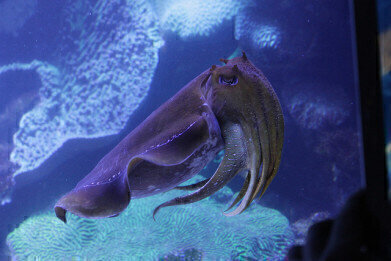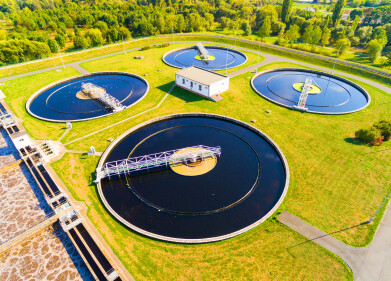Water/Wastewater
Why Are Foreign Fish Coming to the UK?
Sep 16 2017
Just as Brexit looks set to tighten the borders between Europe and the UK, it appears that mass migration of an entirely different kind could be set to mushroom in the coming years and decades. Due to rising sea temperatures in the waters surrounding the British Isles, foreign fish are coming in larger numbers than ever before.
At the same time, common species of British marine life are predicted to drop, as organisms which prefer colder climes move northwards. This could have huge repercussions not only on the eco-systems themselves, but also on the everyday diet of millions of Britons and on our economy, as we import and export different kinds of fish and seafood in increasing numbers.
Uncontrolled borders
The UK populace might have voted to tighten up its borders and put a stranglehold on immigration, but fish and other sea creatures have no respect for arbitrary lines drawn on a map. As climate change affects the temperatures of seas and oceans all over the world, underwater fauna is expected to migrate en masse in order to seek out the conditions in which it thrives.
Marine biologists have long known about the impending danger of rising sea temperatures, but precise information has been unforthcoming – until now. A new study published in the journal Aquatic Conservation: Marine and Freshwater Ecosystems has attempted to better predict exactly which species are likely to be affected by these fluctuating temperatures, and where.
In particular, sardines, cuttlefish, john dory, red mullets, Pacific oysters and the American razor clam are expected to be caught in ever-increasing numbers over the coming years and could provide the basis of the UK fishing industry in the future.
Advantages and disadvantages
While the new arrivals could provide a boost to certain aspects to the British fishing industry, it’s not all good news. Invasive species have the potential to upset our ecosystems and kill off existing sources of food and income.
For example, the slipper limpet is known to wreak havoc on oyster and mussel beds, while the club tunicate represents an even more grave concern. As well as damaging mussel beds, the tunicate (which has the appearance of a plastic bag) is capable of causing respiratory complications in humans if its toxins are ingested. The acorn barnacle and wireweed are other disruptive species which could compete with natives for space and food.
Meanwhile, the migration of traditional lynchpins of the UK marine diet (such as cod, haddock, sole and plaice) means that they are being increasingly caught in Scandinavian waters further north, then sold back to us. Similarly, traditionally Mediterranean species in our waters can be sold back to the continent, but such a state of affairs has the potential to cause pandemonium in already tense Brexit talks.
Manmade activity making waves in marine ecosystems
The effects of manmade climate change will clearly have a monumental effect on the kinds of fish in our waters, but human activity has already impacted individual species in a variety of ways. For example, earlier this year it was discovered that male fish can now lay eggs due to elevated levels of oestrogen in certain rivers and streams, as a result of contraceptive chemicals finding their way into the water.
Meanwhile, blue green algae is another serious threat which has the potential to jeopardise not only the organisms living beneath the waves, but also humans if ingested through other animals. Leaching from septic systems, as well as floodwater and agricultural runoff, have contributed to higher levels of chemicals such as nitrogen and phosphorous in the water, leading to higher levels of this dangerous toxin in British seas, rivers and lakes.
Digital Edition
IET 34.2 March 2024
April 2024
Gas Detection - Biogas batch fermentation system for laboratory use with automatic gas analysis in real time Water/Wastewater - Upcycling sensors for sustainable nature management - Prist...
View all digital editions
Events
Apr 30 2024 Melbourne, Australia
Apr 30 2024 Birmingham, UK
May 03 2024 Seoul, South Korea
May 05 2024 Seville, Spain
May 06 2024 Minneapolis, MN, USA


















